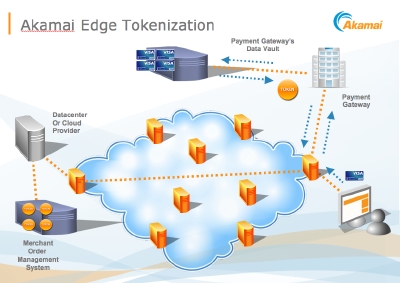Akamai Networks will have mobile web content adaptation and m-commerce optimisation services in place across Europe in the first half of 2011, according to Neil Cohen, Director of Product Marketing.
Akamai provides content delivery and e-commerce services to thousands of enterprises across the world, and it now wants to add the ability for its customers to add mobile web and m-commerce capabilities.
It is basing one part of its mobile play on assets it acquired from French mobile content adaptation player Velocitude in June 2010.
The Velocitude technology will enable Akamai to adapt web site content on the fly to mobile devices – optimised to the screen size, software capabilities and profile of the mobile that is accessing the site.
Cohen said that although many site owners have already built mobile sites, they don’t include full optimisation for the full range of devices that may access the site. Nor do they always go beyond merely reformatting existing content for a mobile, instead of adding in mobile-specific priorities such as the ability to zoom in through a touch UI, add location specific content, or access barcode scanning applications. The platform also enables sites to be represented in different manners, retaining brand identity (above).
“The mobile web means designing different content from the desktop site, to add mobile specific features that you wouldn’t have on the desktop site. The Akamai adaptation solution can also allow sites to be customised for mobile useability, allowing brand differentiation,” Cohen said.
Another capability of Akamai’s EdgePlatform solution, Cohen said, is that caching content local to the user will speed up response times by limiting the need for content requests to reach right across multiple networks to a content server.
The other side of the mobile solution is to extend Akamai’s e-commerce capabilities to m-commerce, including its tokenisation ability below left), but incorporating mobile specific capabilities such as barcode scanning and NFC payments.
 Akamai has 80,000 servers installed across the world, and relationships with 1,000 service providers, Cohen said. Cohen does not envisage the company working with mobile operators to add its optimisation capabilities to operators’ own enterprise services. Instead, he sees Akamai as a customer of the service providers, buying bandwidth and co-location space for its network. But adoption of Akamai’s solution would indirectly benefit operators as its edge optimisation reduces the load across operators’ networks.
Akamai has 80,000 servers installed across the world, and relationships with 1,000 service providers, Cohen said. Cohen does not envisage the company working with mobile operators to add its optimisation capabilities to operators’ own enterprise services. Instead, he sees Akamai as a customer of the service providers, buying bandwidth and co-location space for its network. But adoption of Akamai’s solution would indirectly benefit operators as its edge optimisation reduces the load across operators’ networks.
He added that in his opinion the richness of the mobile web, aided by html5, is “growing by the day”, meaning that the impact of applications upon how users access web based services will be lessened.
“I think to be an app, there will need to be a really good reason for there to be an app,” he said. “That said, Akamai has technology that can be applied to support the performance of applications accessed over the internet.” Cohen pointed to Akamai’s Application Performance Solutions that are supporting AppRiver’s Microsoft Exchange solution.



